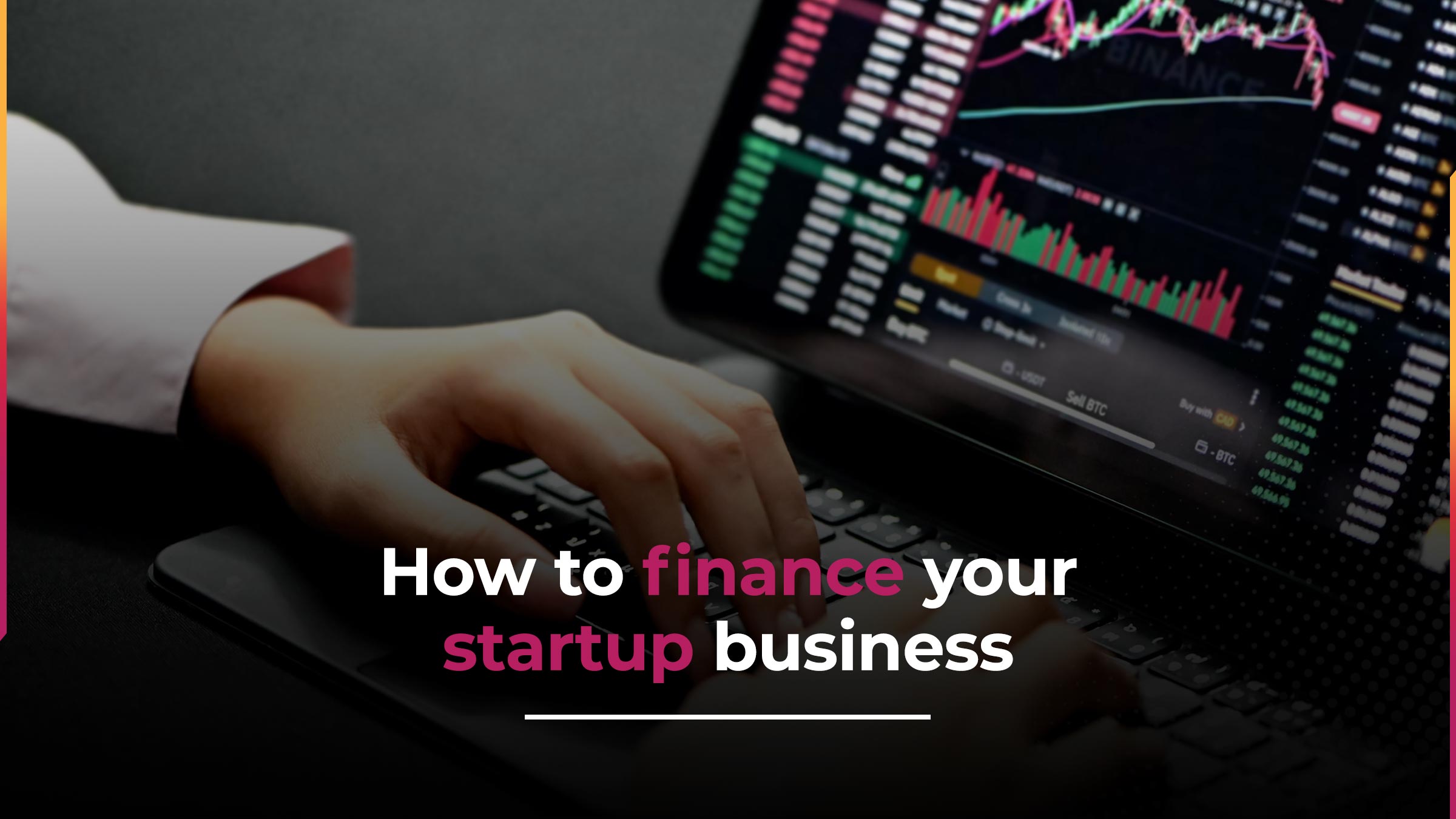
Do you have a great idea for a business? Or have you discovered a niche in the market that you can fill with a potential startup? If so, do you have the finance available to fund your startup idea?
If you answered no to that last question, you’re not alone, but don't worry because there are many ways you can get the money you need! Business funding options abound. We’ll show you 6 ways to finance a startup company.
Financing options for a startup
Getting finance can be a big step in your entrepreneurial journey. It can also be the first step to great success. Here are the 6 different ways you can get financing. Choose one, but always talk to a professional before making any big choices around money.
Small business loan
Small business loans are available from a vast array of sources — banks, credit unions, or boutique lending services. If you're considering a business loan, SBA loans are an attractive option due to their favorable terms and accessibility for small businesses. SBA 7(a) loan amounts can provide the necessary capital whether you opt for equipment investment or expanding operations. Like other loans, you must apply for them, there will be an interest rate, and you must make regular payments.
Below, we've included a range of loans you could apply for:
- Equipment loan - a loan specifically for a small business to buy equipment.
- Working capital loan - a loan used to manage fluctuating revenues due to seasonal reasons or something else. Many are unsecured, and most are short-term loans.
- Small business line of credit - Your business can access a line of credit when needed. There is a cap, but this is useful to help manage things if funds get a bit tight.
Pros
- Borrowing from a bank generally means working with a trusted institution, so you feel safe borrowing money.
- There are clear terms and conditions.
- Getting a loan from a bank is a rubber stamp to show you’re onto a good thing, as banks don't loan to risky businesses.
- You will be required to create a business plan. This is a pro because it makes you think about your business, however, most startups will usually end up throwing away their business plan at the start because things change quickly in startup world.
Cons
- You may not get the full amount of money you request.
- The application process can be complicated.
- Good for the short term, but not suitable for ongoing.
Always shop around before you commit. Discuss with someone with financial knowledge before approaching a lending institution.
Angel investors
These are generally wealthy individuals, or groups, who finance startups as a sense of mentoring, to support go-getters. They are generally leaders in their field and want to help those who have a great idea, but just need the capital.
They generally keep a low profile and want to help you quietly. As it is their money being invested they often would like a say in how the company is run.
Pros
- A gracious person with personal capital, fewer strings than a bank.
- Potentially a better-contracted deal than a bank.
- Opportunity to have a mentor with experience on your team.
Cons
- You can be beholden to someone with different views from your own.
- The terms and conditions can almost be whatever the Angel wants.
- Not an official lending institution so less security.
Venture capitalists
While this can be seen as a good idea, venture capital is not for everyone. Venture capital is aimed at technology-based startup ideas with a high potential for growth in new fields.
You give up some of the ownership of your company as equity, to get investment. Venture capitalists do expect a high return on their investment as they are taking a risk with you.
Pros
- You can quickly accelerate the growth of your business.
- The money is yours once you have it.
- Venture capitalist companies can connect you to other businesses to help your growth.
Cons
- Investors now own a stake in your company
- Investors will be expecting big results.
- Can be a very time-consuming way to raise funds.
Crowdfunding
This is where you raise money by asking the public to give you money with the promise of a reward. It can be great for marketing purposes as well.
As it's a rewards-based system, you need to have tiers of rewards, and you need to honour those rewards.
Some crowdfunding platforms include Kickstarter, GoFundMe, IndieGoGo, and more. Australian crowdfunding sources include Birchal and Pozible. Birchal gives people an opportunity to acquire equity in your project, rather than early access and rewards.
Pros
- The niche audience that gives you money is already your core customer group.
- Can easily raise more than the initial investment request.
- Great way to market your business.
Cons
- Not a guaranteed source of investment.
- Fees to the platform can be hefty.
- You are required to service the investors first, with rewards, before hitting full production.
- Reputation. If you get investment and don’t produce, this will be bad PR for you.
Government grants and subsidies
You can get grants from a federal or state level. You undertake an application process and wait to be granted the money, if successful. The range of grants is large, and often industry-specific, coming from the portfolio that is associated with your area of business.
A lot of people apply for grants every year, so competition can be tough.
The applications can be just as tough. You will need things like a detailed description of the project you’re asking to be funded, how it positively benefits the community, a fully costed work plan, and more.
Pros
- If you get the grant, the money is yours. You don’t need to repay grants.
- Once you’ve earned one grant, your chances of a second and third tend to increase.
- Positive PR - you get a reputation as a ‘good business’ if you do well with your grants.
Cons
- They are time-consuming to apply for. You need to weigh up the Return On Investment (ROI) on the effort put in.
- High competition. A lot of people want the grant money you’re after too.
- You need to be very specific about how you will spend the money. If you spend it elsewhere, that will penalise you if you go for further grant applications.
Personal investment
Should you invest in the business yourself? It can seem like a good idea - it is YOUR money and YOUR business, so you can do with it what you will. However, if the business doesn't grow, or fails, then again, it is YOUR money that is lost, and not someone else’s.
"Credit cards have been used to fund many new Australian businesses," according to David Boyd, CEO of creditcardcompare.com.au. "However, since a startup won't have a long enough trading history, it's highly unlikely that you'll be eligible for a business credit card. Therefore, most people funding their business with a credit card have taken on the liability personally. This can be extremely risky and is a decision not to be taken lightly."
Pros
- It's your money so you can spend it however you feel.
- You know exactly how much money you have. Unlike banks who may loan you less than you need, you know how much you will have.
- Knowing how much money you have helps budget and plan better.
Cons
- It being your own money, if you lose it, you’ve lost your savings.
- If you remortgage your house and your business tanks, then it is your house, and assets, which could be lost too.
- Less separation between work and life can blur the lines. You may invest more of YOURSELF into the business as it is your own money. Work-life balance may tilt.
Key takeaways
Sometimes you need a helping hand to get your business to the next level, something to fund a project that will elevate you into the stratosphere.
The Entourage understands this, and we totally encourage you to aim high and get there. We have training courses all about how to get business finances, so have a look, and let’s help you raise money and raise yourself.
Related Posts
Join the movement.
Your Entourage journey starts here. Join Australia's largest community of over 500,000 business owners and entrepreneurs, and receive instant access to exclusive content and updates delivered straight to your inbox.



